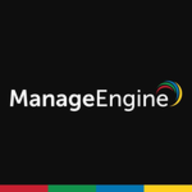

Check Point Security Management and ManageEngine EventLog Analyzer compete in the enterprise security management category. Based on user reviews, ManageEngine EventLog Analyzer seems to have the upper hand with higher overall satisfaction due to its comprehensive features and value for money.
Features: Check Point Security Management is known for its robust security policies, real-time threat intelligence, and integration capabilities. ManageEngine EventLog Analyzer offers comprehensive log management, user-friendly configuration, and detailed compliance reporting, which users find beneficial for extending beyond traditional security management.
Room for Improvement: Check Point users express a need to simplify maintenance and enhance reporting features. Users of ManageEngine point out improvements in scalability and a need for better integration with existing systems. ManageEngine focuses on enhancing scalability, whereas Check Point faces usability challenges.
Ease of Deployment and Customer Service: Check Point Security Management has a complex deployment process requiring technical expertise, but users report supportive customer service. ManageEngine EventLog Analyzer is seen as easier to set up, with simple deployment and satisfactory customer service.
Pricing and ROI: Check Point Security Management involves higher setup costs but provides strong ROI for businesses that prioritize security. ManageEngine EventLog Analyzer is perceived as more cost-effective, offering a balanced price with its comprehensive feature set. Check Point is viewed as a security investment, while ManageEngine is valued for cost efficiency.


Check Point Security Management is an advanced security management platform for enterprises. The platform integrates all aspects of security. A single platform manages the entire infrastructure, from data centers to private/public cloud deployments.
Check Point Security Management is a reliable and easy-to-use security platform. It integrates all aspects of your security environment to strengthen the security posture without impairing productivity. The system has a layered policy model. This means the security policy can be separated into layers for network segmentation. Different administrators can manage different policies. The policy layer automates the tasks.
The platform is extensible, scalable, and integrates easily with orchestration systems and change management.
Basic Components of the Infrastructure
The smart console offers several advantages. Changes in security policies and logs can be done with a click. You can navigate from an item within a log to the policy. There are also built-in multi-language support and accessibility features.
1. Security Management Server: The server manages security gateways with set security policies and monitors security events on the network.
The automation server is an integrated part of the management server. The API server is active by default on servers with 4 GB of RAM or more and on standalone servers with 8 or more GB of RAM.
The automation server communicates with the management server the same way as the Smart Console. This architecture allows the same validation errors and warnings to be presented when using an automation session.
The same audit logs generated using the Smart Console are also generated using an automation session. If you have a multi-domain environment, there is only one automation server that monitors all the IP addresses of the multi-domain management server.
2. Security Gateway is placed at the edge of the network. It monitors and filters traffic and enforces security policies.
Logging, Event management, and Monitoring
With Check Point Security Management, logging, reporting, event management, and monitoring are integrated. The platform features widgets and chart templates that optimize visibility. One of the best features is the one-click exploration. This simplifies going from a general overview to specific event details.
Benefits of Check Point Security Management
The unified console also means a single policy for users, data, applications, and networks. The granularity control helps accelerate administration processes. This feature, together with automation, is key to achieving reduced operational overhead. Security teams can automate tasks and even create self-service security web portals with the Check Point Security Management platform.
Threat management is fully integrated, with reporting, logging, and monitoring all in one dashboard. This provides full visibility into the security of the network.
Security Management Suite
The Security Management Suite consists of the following modules:
Reviews from Real Users
A Network Security Engineer/Architect at a tech services company says, "The features we like and find the most valuable are the ways we can manage the policy, create objects, and drag and drop objects in our daily operation. It makes our daily operation on the firewall management much easier than going, for example, to one firewall, then going to the other."
"The management API is the best new feature for me. It allows us to further automate our customers' automated server ordering," says a System Engineer Network & Security at OTTO GmbH & Co KG.
A Senior Infrastructure Services Specialist at St.George Bank Limited adds that "The solution is ideal for use and deployment in a large infrastructure environment."
Your organizations IT infrastructure generate huge amount of logs every day and these machine generated logs have vital information that can provide powerful insights and network security intelligence into user behaviors, network anomalies, system downtime, policy violations, internal threats, regulatory compliance, etc. However, the task of analyzing these event logs and syslogs without automated log analyzer tools can be both time-consuming and painful if done manually.
EventLog Analyzer provides the most cost-effective Security Information and Event Management (SIEM) software on the market. Using this Log Analyzer software, organizations can automate the entire process of managing terabytes of machine generated logs by collecting, analyzing, correlating, searching, reporting, and archiving from one central location. This event log analyzer software helps to monitor file integrity, conduct log forensics analysis, monitor privileged users and comply to different compliance regulatory bodies by intelligently analyzing your logs and instantly generating a variety of reports like user activity reports, historical trend reports, and more.
We monitor all Log Management reviews to prevent fraudulent reviews and keep review quality high. We do not post reviews by company employees or direct competitors. We validate each review for authenticity via cross-reference with LinkedIn, and personal follow-up with the reviewer when necessary.